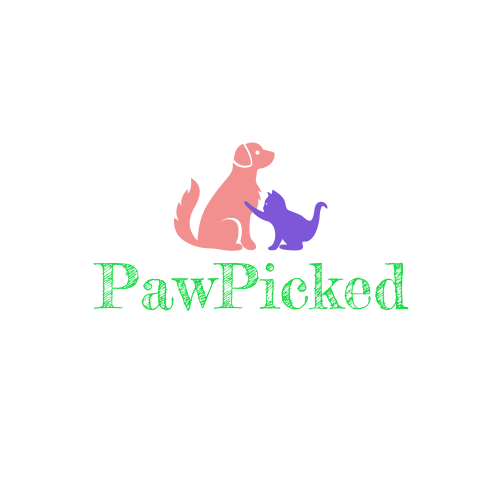5 Healthy Human Foods That Dogs Shouldn’t Eat
Written By: Dr. Kristie
Dogs love to beg at the table, and it's tempting to slip them a bit of food off your plate. But not all human foods, even seemingly healthy ones, are safe for dogs. Dogs metabolize certain foods differently than humans. Some foods that are healthy for humans can even kill a dog if they eat enough. Here are some healthy human foods you shouldn't share with your dog.
Macadamia Nuts
Macadamia nuts are a healthy food for humans since they're rich in vitamins, minerals, fiber, healthy fats, and antioxidants, but keep them away from Fido. Macadamia nuts won't kill your dog, but they can make them miserable for 12 to 48 hours. Dogs who eat macadamia nuts can become lethargic, weak, develop a high fever, and vomiting. If the vomiting is severe enough, they may require intravenous fluids.
That macadamia nuts are toxic to dogs is proven but the exact reason is unknown. There is often a delayed reaction after a dog eats macadamia nuts, and they may not develop symptoms for up to 12 hours. According to the Merck Veterinary Manual, 1 to 2 grams of macadamia nuts per kilogram of body weight is enough to cause symptoms in dogs.
Avocado
Avocados are rich in vitamins, minerals, antioxidants, fiber, and healthy fats. Humans can enjoy them freely, but dogs can have problems if they consume large quantities. Avocado contains persin, a fungicidal compound that's toxic to dogs. The flesh of avocados contains only small quantities, usually not enough to cause problems. However, avocado leaves, skin, and the pit contain amounts large enough to be an issue.
Another risk of avocado is the pit. A dog could swallow an avocado pit and develop a life-threatening obstruction in their esophagus that would require surgery. Enjoy avocado, but give your canine best friend a safe bone to chew on instead.
Grapes
Grapes are a tasty treat for humans but don't share them with your dog. Grapes contain tartaric acid, which can be problematic for dogs. Being dried grapes, raisins are another food you should keep off your dog's snack list.
The amount of tartaric acid in grapes and raisins varies with the type of grape and the degree of ripeness. Since tartaric acid is also a component in cream of tartar, used in backing, avoid giving your dog baked goods that contain cream of tartar, too.
A dog that consumes tartaric acid or cream of tartar can develop digestive symptoms including vomiting and diarrhea. A more serious complication is kidney failure. Although not common, tartaric acid can cause kidney damage in a dog.
Chocolate
Dark chocolate has heart health benefits for humans but there are only downsides to sharing chocolate with dogs. Chocolate contains methylxanthines, like caffeine and theobromine, that dogs metabolize differently from humans.
If your dog consumes chocolate, they can develop symptoms within two to 24 hours afterward. These symptoms include:
• Digestive upset
• High temperature
• Fast heart rate
• Rapid breathing
• Increased thirst
• Seizures
• A drop in blood pressure
If they consume enough of it, especially if they're a small dog, it can be fatal. The amount of methylxanthines in chocolate varies. Darker and European chocolate usually has higher quantities than milk chocolate but avoid giving your dog any type of chocolate.
Onions
Many humans enjoy the bold taste of onions in recipes, and they contain flavonoids, antioxidants with anti-inflammatory activity. But keep both raw and cooked onions away from your dogs. Onions, even in modest amounts, can be toxic to a dog. According to the American Kennel Association, 100 grams of onion (the amount in a medium onion) per 20 kilograms of body weight is enough to cause toxicity.
A dog that ate onion may develop the following symptoms:
• Weakness
• Blood in their urine
• Stomach upset
• A fast heart rate
• Pale gums
When dogs consume onions in high enough amounts, it can cause a condition called hemolytic anemia that leads to damage to their red blood cells. Always read the label on the products you give your dog to ensure they aren't seasoned with onion powder. Both raw and cooked onions are toxic to dogs, so avoid giving them either.
The Bottom Line
These are some foods that humans can eat with a good conscience that can harm a dog. This isn't a complete list. Always question what you give your dog off your plate since many foods are seasoned with onions or onion powder, and cream of tartar is in many baked goods. If you suspect your dog has eaten any of these foods or is experiencing symptoms, see your veterinarian immediately.
References:
"Macadamia Nut Toxicosis in Dogs - Toxicology - Merck ...." merckvetmanual.com/toxicology/food-hazards/macadamia-nut-toxicosis-in-dogs.
"Avocado Is Toxic To Dogs | Pet Poison Helpline." petpoisonhelpline.com/poison/avocado/.
"'In the News': Updates on Grape Toxicity - Clinical ...." 12 Apr. 2021, vetnutrition.tufts.edu/2021/04/in-the-news-updates-on-grape-toxicity/.
"Chocolate Toxicity in Dogs: Signs and What to Do ...." veterinaryemergencygroup.com/blog/chocolate-toxicity-in-dogs/.
"Can Dogs Eat Onions? - American Kennel Club." 11 May. 2017, akc.org/expert-advice/nutrition/can-dogs-eat-onions/.

